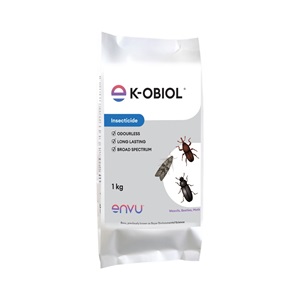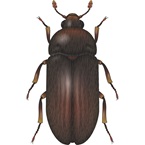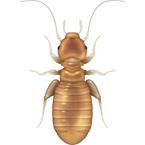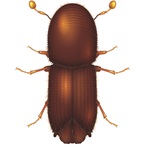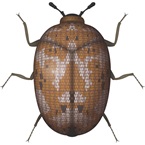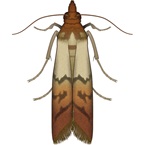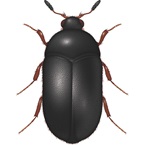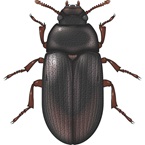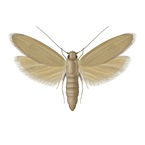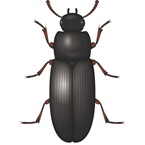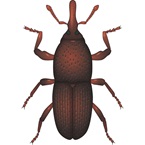Species category: Stored product pest
Scientific name: Stegobium paniceum
Family: Anobiidae
Description
Oval shaped and reddish-brown in colour, the adult is 2-3.5mm long. The have a cylindrical body that appears to be humped and are covered in dense short yellowish hairs.
The Biscuit Beetle, which is also commonly known at the Drugstore Beetle, has distinctive longitudinal grooves along its wing cover and its antennae end in three enlarged segments.
A cosmopolitan pest, it can be found all across the world but is particularly prevalent in warmer regions and can survive in heated structures in more temperate climates.
They are fond of warmth and so are widely prevalent in shops and domestic larders, infesting a wide variety of dried matter and stored food products. It is also a serious pest of agricultural grain storage.
Behaviour
A pest of cereal products e.g. flour, bread, it is an indiscriminate eater and will feast on a wide variety of products from furs and leather to spices and even pharmaceutical products.With such a varied diet it is found in a wide range of places, as it will survive on any type of food. These insects are winged but tend to travel by transferring from one food source to the next.
It lays its eggs on a food source and once they begin to hatch the larvae continue to feed on the food. In a warm atmosphere, there may be as many as four generations per year.
Risks
Biscuit beetles feed on a wide range of cereal crops and beverage concentrates. Infested products may be contaminated and products and packaging may be damaged. The larvae are able to penetrate tinfoil and sheet lead. Books and manuscripts may also be attacked

